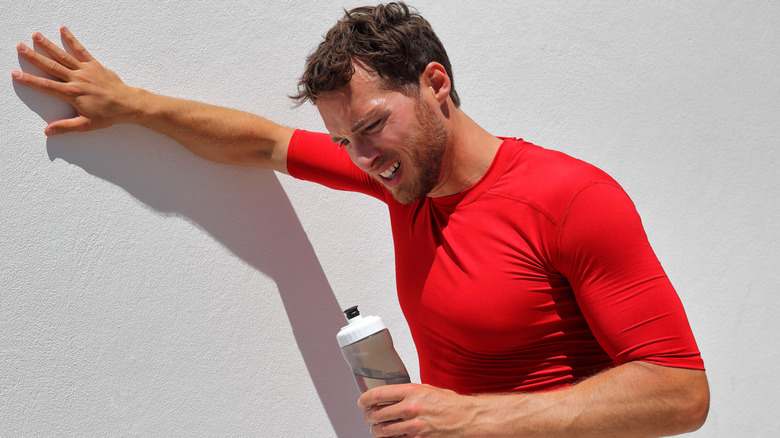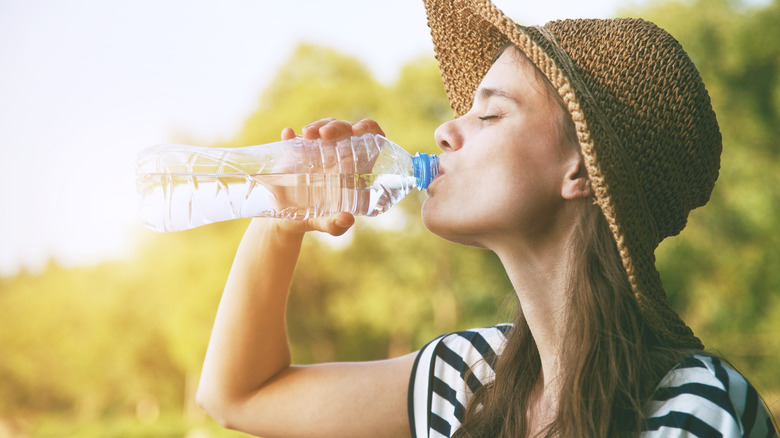What's The Difference Between Heatstroke And Heat Exhaustion?
If you are like most people, you spend more time outside when the weather is warmer. That's a good thing since research indicates that spending time outdoors is beneficial to your health, a study by the University of East Anglia found (via Science Daily). However, as temperatures rise, the risk of heatstroke and heat exhaustion increases. These heat-related illnesses may sound alike, but they are not the same.
Heatstroke is the most dangerous of the two. During a heatstroke, the body overheats from too much physical activity in high temperatures. Prolonged exposure to heat can also cause heatstroke. With this condition, your body temperature reaches 104 degrees Fahrenheit or higher. Other symptoms include a fast heart rate, nausea, vomiting, rapid breathing, and headache. Confusion, slurred speech, and seizures can also occur with this condition (via Healthline).
Symptoms of heat exhaustion include muscle cramps, a drop in blood pressure when standing up, feeling faint, profuse sweating, dizziness, nausea, cool skin with goosebumps, and a pulse rate that varies from fast to slow (via Healthline).
Treat symptoms of heatstroke and heat exhaustion quickly
Treatment for either of these conditions is similar. If you think you are experiencing heatstroke or heat exhaustion, move out of the heat to a shady area or into air conditioning immediately. Remove any tight or heavy clothing and work on cooling down either by getting wet from a water hose or a cool shower. If possible, place ice packs on the back of your neck, forehead, armpits, and groin. Drink water or a sports beverage with electrolytes to help your body rehydrate (via Mayo Clinic).
Heat exhaustion can develop into heatstroke if it is not treated, so it is important to treat symptoms quickly. If symptoms do not improve within an hour or two or if your condition worsens, seek medical attention. Likewise, it is critical to get emergency care for heatstroke because when left untreated, the condition can damage your heart, brain, kidneys, and muscles. Delayed treatment can even result in death (via Mayo Clinic).
To reduce your risk of heatstroke or heat exhaustion, stay in a cool area during the hottest parts of the day. Wear lightweight clothing and a sun hat when you are outside. Carry a bottle of water with you and drink often. Finally, limit exercise to early morning or dusk (via Healthline).


